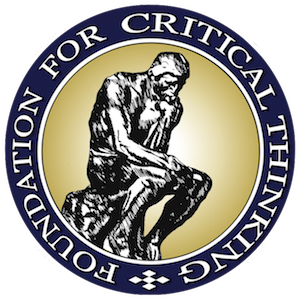September 2019 Critical Thinking Educators and Administrators Academy
Event Cancelled
Understanding the Proper Role of Socratic Questioning And Assessment in Teaching and Learning
Plus: Advanced Seminar for Returning Delegates
A Two-Part Academy; Attend Two Days or Four
312 N. Main St.
Bentonville, AR 72712
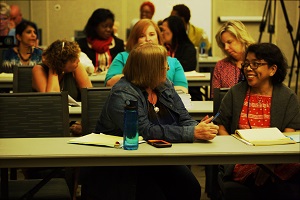 Socratic questioning encompasses a disciplined and systematic approach to questioning based on tools of criticality. It helps us explore, develop, evaluate, analyze, and come to terms with our thinking. It is invaluable in any aspect of life. It forms a key part of being a high-functioning teacher, student, professional, or government official. It involves the process of asking and addressing the questions that are essential in our personal and professional lives.
Socratic questioning encompasses a disciplined and systematic approach to questioning based on tools of criticality. It helps us explore, develop, evaluate, analyze, and come to terms with our thinking. It is invaluable in any aspect of life. It forms a key part of being a high-functioning teacher, student, professional, or government official. It involves the process of asking and addressing the questions that are essential in our personal and professional lives.
In Socratic questioning we explore complex ideas and issues, evaluate our assumptions, elucidate concepts and ideas, distinguish between what we know and what we only thought we knew, exercise intellectual humility and intellectual perseverance, and follow out the implications and consequences of our own thinking and the thinking of others.
Participants in these sessions will engage in the active practice of Socratic questioning, internalizing its methods as well as the critical thinking concepts and processes that lie at the heart of it. This session is for those educators, administrators, professionals, and government and military instructors who value critical thinking and the art of intelligent, disciplined questioning.
The purpose of assessment in instruction is improvement. The purpose of assessing instruction for critical thinking is improving the teaching of discipline-based thinking (historical thinking, biological thinking, sociological thinking, mathematical thinking, and so on). It is to improve students’ abilities to think their way through content using disciplined reasoning.
However, there is often a crucial missing link between what we teach and how we assess what we 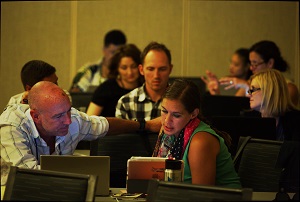 teach. In instruction, we tend to think of our primary purpose as “teaching the content.” We tend to dedicate the first part of the course to “teaching the first part of the content.” We then at some point “assess” what students have “learned” in our courses (usually with a test which covers the “content” the students have presumably learned during this first period of the course). This same pattern is frequently repeated several times in a course, so that teachers and faculty come to believe they have thoroughly “covered” their content as long as student perform at “sufficient” levels on their tests.
teach. In instruction, we tend to think of our primary purpose as “teaching the content.” We tend to dedicate the first part of the course to “teaching the first part of the content.” We then at some point “assess” what students have “learned” in our courses (usually with a test which covers the “content” the students have presumably learned during this first period of the course). This same pattern is frequently repeated several times in a course, so that teachers and faculty come to believe they have thoroughly “covered” their content as long as student perform at “sufficient” levels on their tests.
But to internalize powerful ideas embedded in content entails assessing one’s learning while one is engaged in learning. Learning and the assessment of learning are intimately integrated in the mind of the disciplined reasoner. Put another way, learning and accurate assessment of that which has been learned are intertwined in the skilled reasoner. Students come to take responsibility for their learning when they understand the intimate relationship between appropriate assessment of thought and the internalization of content. It is this for which we are aiming when we bring critical thinking and assessment to the core of teaching and learning.
This session will focus on methods for systematically integrating assessment through critical thinking into the teaching and learning process.
Participants who have attended our conferences or academies in the past may sign up for one or both sessions of the Advanced Seminar (these options are available during the online registration process), which will be based upon the Oxford Tutorial Approach ( click here for our description and modification of this approach). Participants seeking Certification in the Paul-Elder Approach to Critical Thinking , and who have met the prerequisites, are able to complete the certification process during this Advanced Seminar.
In this Seminar, we will focus on the following topics:
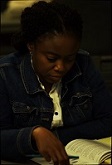
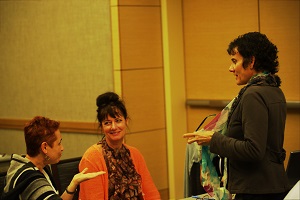 For almost 40 years, The Foundation for Critical Thinking has taken the lead in advancing a robust, integrated, comprehensive conception of critical thinking throughout education and society. Consequently, the Paul-Elder Framework for Critical Thinking™ has been implemented by educators at all levels and in all fields of study in the U.S. and abroad.
For almost 40 years, The Foundation for Critical Thinking has taken the lead in advancing a robust, integrated, comprehensive conception of critical thinking throughout education and society. Consequently, the Paul-Elder Framework for Critical Thinking™ has been implemented by educators at all levels and in all fields of study in the U.S. and abroad.
We invite all educators, administrators, professionals, and government officials to join us at the September 2019 Critical Thinking Educators and Administrators Academy. This event will be led by two leading international authorities on critical thinking: Dr. Linda Elder, Senior Fellow and educational psychologist, and Dr. Gerald Nosich, Senior Fellow and professor emeritus.
The Academy will entail four days of interactive workshops which will enhance your understanding of critical thinking and how to best foster it in your courses and at your institutions. The academy will be followed a few weeks later by two voluntary, one-hour online study groups (with dates and times to be announced). The follow-up study groups are designed to help you continue advancing in critical thinking by developing your instructional design plans and processes under our direction. Certificates of Completion will be available at the end of the process.
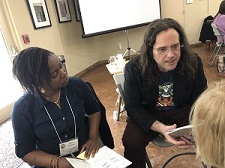 The Academy will be held in a retreat setting in beautiful Northwest Arkansas, near the internationally-renowned Crystal Bridges Museum and world-class biking trails. Participants will stay in local hotels and rentals of their choosing.
The Academy will be held in a retreat setting in beautiful Northwest Arkansas, near the internationally-renowned Crystal Bridges Museum and world-class biking trails. Participants will stay in local hotels and rentals of their choosing.
This Academy is designed for teachers, faculty, administrators, and trainers in business, government, and the military working to bring substantive critical thinking across their respective institutions or into specific departments and divisions.
The Advanced Seminar will be for those who have been studying in the Paul-Elder Approach to Critical Thinking, and who want to advance their understandings of the theory and application of critical thinking for use in their work. Those who have met the Foundation for Critical Thinking prerequisites for certification in the Paul-Elder Approach can achieve certification at this academy, should they meet the requirements and apply for certification according to our certification guidelines.
Don’t miss this opportunity to work with world-class authorities on critical thinking in a small retreat setting.
Those who will benefit from this Academy include:
• Teachers, faculty, and administrators who seek to understand the relationship between Socratic questioning and critical thinking across every field of study and within all domains of human thought.
• Teachers, faculty, and administrators who seek to understand the proper role of assessment in teaching and learning, as well as the relationship between assessment and critical thinking.
• Colleges and Universities committed to bringing critical thinking into the foundations of instruction 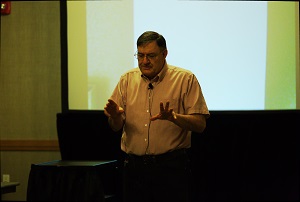 across their respective institutions or within particular departments or divisions.
across their respective institutions or within particular departments or divisions.
• Colleges and Universities seeking accreditation or re-accreditation with emphasis on critical thinking (including critical reading and critical writing) through any accreditation body.
• K-12 school districts and schools committed to infusing critical thinking within their curricula.
• Those in government, business, or the military who seek to use and teach the Paul-Elder Approach in their work as trainers, administrators, or consultants.
• Instructors who seek to more deeply command the concepts and principles found in a rich conception of critical thinking.
We invite you to submit a proposal for an Academy Presentation at the the October 2019 Critical Thinking Educators and Administrators Academy to share your experiences in critical thinking!
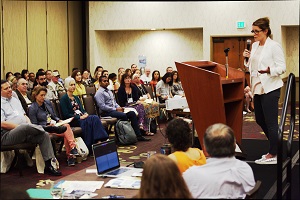 Academy Presentations are conducted by Academy participants whose proposals have been approved by Fellows of the Foundation for Critical Thinking. Each presenter will take his or her turn giving a 5-10 minute presentation to all Academy attendees, and each individual presentation will be followed by a brief question-and-answer session in which all attendees are invited to ask questions of the presenter.
Academy Presentations are conducted by Academy participants whose proposals have been approved by Fellows of the Foundation for Critical Thinking. Each presenter will take his or her turn giving a 5-10 minute presentation to all Academy attendees, and each individual presentation will be followed by a brief question-and-answer session in which all attendees are invited to ask questions of the presenter.
Presenters should be advised that technology (such as projectors) will not be available to our knowledge, but that they can bring reasonable aids such as handouts.
All Academy Presentations are expected to be couched in a substantive conception of critical thinking. To submit a proposal, please email us with the following information written into the body of your email (not in an attached file, please):
1. Your first and last name, and the first and last name of any co-presenters.
2. The name of your institution and your professional title, and the same for any co-presenters.
3. The title of the Academy Presentation you are proposing.
4. A brief abstract, including the purpose/function of your Presentation (Academy participants should have a reasonably clear idea of what to expect by reading the abstract).
5. A brief description of your conception of critical thinking. E.g., 'To me, critical thinking is . . .'
6. Your preferred contact telephone number.

| Registration Options | Cost Per Person | |||
| EVENT OPTIONS: If Paid by July 1, 2019 | 1 person | 3 or more people | ||
| Standard Academy: Sept. 26-27 (First 2 Days) | $649 | $549 | ||
| Standard Academy: Sept. 28-29 (Last 2 Days) | $649 | $549 | ||
| Standard Academy: Sept. 26-29 (All 4 Days) | $1,190 | $949 | ||
| Advanced Seminar: Sept. 26-27 (First 2 Days) | $649 | $549 | ||
| Advanced Seminar: Sept. 28-29 (Last 2 Days) | $649 | $549 | ||
| Advanced Seminar: Sept. 26-297 (All 4 Days) | $1,190 | $949 | ||
| EVENT OPTIONS: If Paid AFTER July 1, 2019 | 1 person | 3 or more people | ||
| Standard Academy: Sept. 26-27 (First 2 Days) | $769 | $669 | ||
| Standard Academy: Sept. 28-29 (Last 2 Days) | $769 | $669 | ||
| Standard Academy: Sept. 26-29 (All 4 Days) | $1,380 | $1,129 | ||
| Advanced Seminar: Sept. 26-27 (First 2 Days) | $769 | $669 | ||
| Advanced Seminar: Sept. 28-29 (Last 2 Days) | $769 | $669 | ||
| Advanced Seminar: Sept. 26-297 (All 4 Days) | $1,380 | $1,129 | ||
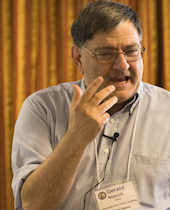
Dr. Gerald Nosich
Dr. Gerald Nosich is a Senior Fellow at the Foundation for Critical Thinking and a prominent authority on critical thinking. He has given more than 150 national and international workshops on critical thinking, has worked with the U.S. Department of Education on a project for the National Assessment of Higher Order Thinking skills, has served as the Assistant Director of the Center for Critical Thinking, and has been featured as a Noted Scholar at the University of British Columbia. Dr. Nosich is Professor Emeritus at SUNY Buffalo State and the University of New Orleans, and is the author of two books including Learning to Think Things Through: A Guide to Critical Thinking Across the Curriculum .
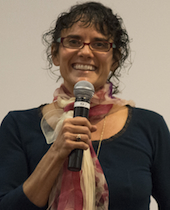
Dr. Linda Elder
Dr. Linda Elder is an educational psychologist and a prominent authority on critical thinking. She is President and Senior Fellow of the Foundation for Critical Thinking, has taught psychology and critical thinking at the college level, and has given presentations to more than 50,000 educators. She has coauthored four books and 24 Thinker's Guides on critical thinking. Concerned with understanding and illuminating the relationship between thinking and affect, and the barriers to critical thinking, Dr. Elder has placed these issues at the center of her thinking.
